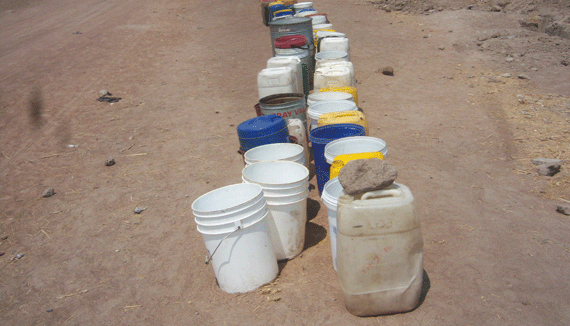
HARARE — As the poisoning of Zimbabwe’s elephants continues unabated, conservation sources apparently believe it is the work of disgruntled and cash-strapped rangers protesting against meagre salaries, an issue authorities do not deny.
Agencies
According to British newspaper The Telegraph, the sources believed that some of the poisoning was done by rangers who risked their lives regularly to combat often heavily-armed poachers, but were paid “badly”.

The report said one of the two rangers recently arrested on suspicion of poisoning elephants earned just £280 (R5 800) a month, including allowances, yet a single elephant can yield 10kg of ivory with a market value of around £19 000 (R396 000).
“Some of the rangers are very dissatisfied with their remuneration and say that they are not getting some allowances they believe they should get,” a source close to the Zimbabwe Parks and Wildlife Management Authority (Zimparks)was quoted as saying.
Zimparks regional manager, Tawanda Gotosa yesterday admitted there could be some malcontents in the system, but said the organisation had a zero tolerance of corruption.
“We always act swiftly to deal such malcontents by fully applying the law and our policies. The authority has zero tolerance to corruption, as all cases that come to our attention are thoroughly dealt with. However, we are currently investigating an isolated case linking two former contract workers to recent poisoning of elephants in Hwange National Park,” he said.
- Chamisa under fire over US$120K donation
- Mavhunga puts DeMbare into Chibuku quarterfinals
- Pension funds bet on Cabora Bassa oilfields
- Councils defy govt fire tender directive
Keep Reading
“If it was not for the sacrifice and dedication to duty by our rangers, we wouldn’t have all the wildlife we have today, particularly as Zimbabwe’s elephant population is in Appendix II of CITES (Convention on International Trade in Endangered Species) as a result of a sound management system. Allowances are determined and stipulated in our approved policies and we are certainly not the best neither are we the worst-paid conservation organisation.”
At least 62 elephants have reportedly killed by cyanide since last month in Hwange and Kariba. The latest carcasses were found this week in the Sinamatela area of Hwange.
A haul of 173kg of ivory was intercepted at Harare International Airport at the weekend, apparently bound for Singapore. Cyanide is readily available on the black market in Zimbabwe, and often used in illegal gold panning.










